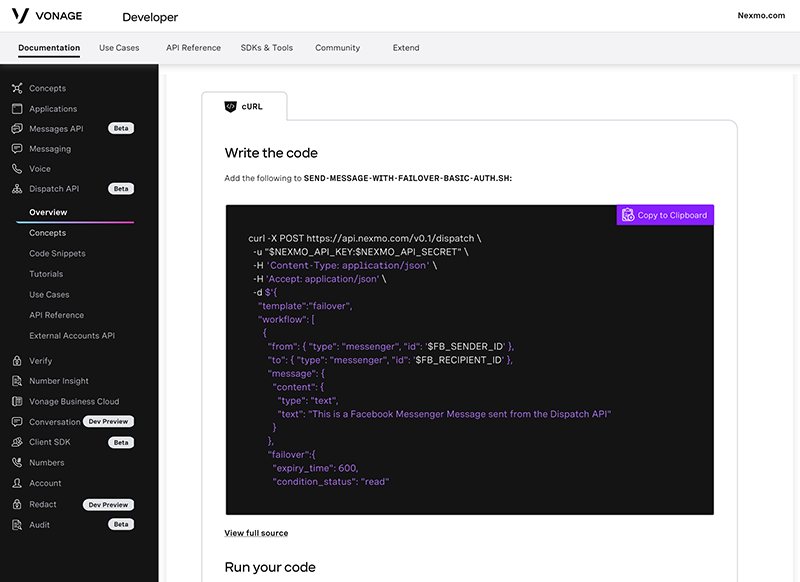Voice-based critical alerts
Enable worldwide delivery of critical alerts via phone calls, and grow your business with viral adoption.More immediate reach
A persistently ringing phone is harder to ignore than a text or push message, so using a voice call to deliver a critical alert — about a cancelled flight or an early school closing — increases the likelihood of your alert being heard.Ensure delivery
To ensure critical alerts are delivered, you can use a simple IVR application to enable call recipients to acknowledge receipt of the alert. In addition, you can automatically deliver alerts to backup contacts if no acknowledgement is detected.
How voice-based critical alerts work
1. Your app calls
Your application initiates simultaneous calls to everyone who needs to know about an event that has happened or is about to happen.2. Call recipients answer
Call recipients see the local virtual number you provisioned from Vonage API as the caller ID and answer the phone.3. Alert recipient hears your message
Your app plays a recorded or text-to-speech message to convey the alert. Your message can be personalized and delivered in multiple languages.4. Alert recipient confirms receipt
Your app instructs the called party to press a key to acknowledge receipt of your message.5. You can run reports
You can run reports to see who was contacted (and when) as well as who responded (and when) to your alert.Programmable elements used in this solution
Provision voice
Create app
Call control API
Why choose Vonage APIs for voice-based critical alerts?
Engage locally to reach recipients
Using Vonage's Number Provisioning API, you can associate local phone numbers with your campaigns. Vonage APIs provide only high quality voice connections that pass calling line identification (CLI) information, so you can present users with a recognizable local identity, which increases the likelihood that calls will be answered. You can also deliver text-to-speech messages in the local language for each market, with 23 languages supported.Reduce costs
With true per-second billing in most countries, you pay only for the time you use. Compared to traditional per-minute billing you could save more than 50%, depending on your calling patterns and destinations. In addition, you save long distance fees because all calls are local in their respective markets.Ensure alerts are confirmed
Using Voice API, you can ask recipients to confirm alert receipt with a simple IVR menu. In the case of emergency alerts, recipients could indicate whether or not they are safe via the same IVR menu. You could also enable them to record an audio response.Real time interaction
Because Vonage APIs can interact with your application in real time, you can optimize your business rules to respond in a dynamic manner. For example, when Vonage APIs detect that voicemail or an answering machine has answered the call, it informs your app in real time so that your business rules can determine whether to retry or leave a message.Related solutions

